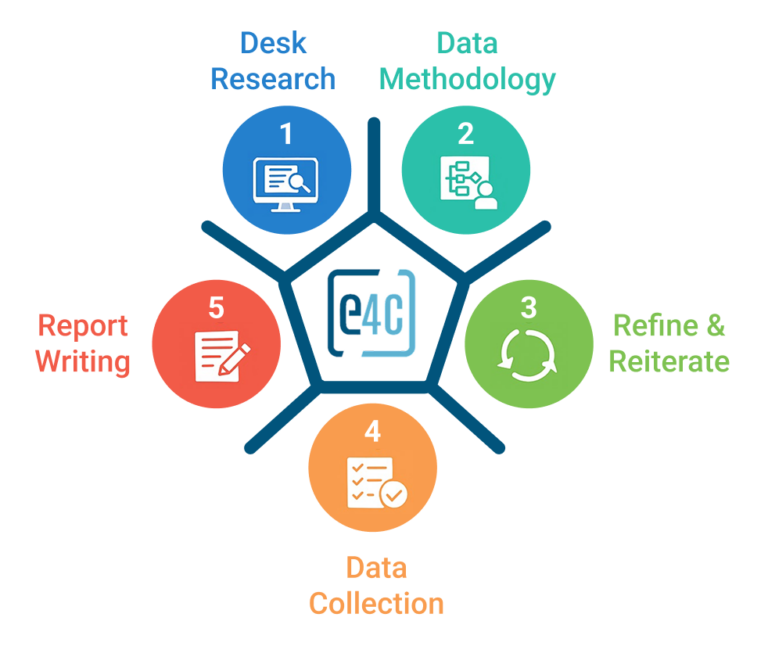Engineering for Change’s (E4C) Impact Projects have connected mission-driven organizations with technical expertise since 2019. However, the lasting value to partners has not been fully measured or communicated. Current evaluations capture outputs at the end of each project but rarely assess long-term impacts, such as whether solutions were adopted, strategies reshaped, or new opportunities created. This has left a critical blind spot in understanding the real, sustained impact of the program.
This project set out to close that gap by developing a partner-centered Impact Measurement and Management (IMM) framework that captures both immediate outcomes and longer-term organizational change. The framework links E4C’s theory of change to practical measurement tools, combining end-of-project surveys with six-month follow-ups and semi-structured interviews. It focuses on four dimensions of value: Implementation Status, Sustained Impact, Social Impact Tracking and Future Engagement Potential.
This new system aims to shift measurement from transactional reporting to transformational insight. It provides E4C with an understanding of how projects inform strategy, strengthen internal systems, and advance Sustainable Development Goals (SDGs). Importantly, it also provides a replicable, handover-ready process embedded in Airtable, ensuring consistency, comparability, and long-term scalability.
The result is a more coherent and actionable understanding of partner value. The framework strengthens E4C’s ability to communicate results to funders and stakeholders, inform decision-making, and continuously improve program design and delivery.
Beyond quantitative results, it aims to build on the qualitative dimensions of change – the stories of how E4C’s collaborations spark new initiatives, build local capacity, and strengthen innovation ecosystems.
Ultimately, this work reinforces E4C’s position as a learning organization that not only measures outcomes but also uses data to drive reflection, alignment, and continuous improvement. The IMM framework represents a significant step toward embedding impact thinking at different stages of E4C’s partnership lifecycle, ensuring that collaborations contribute meaningfully to both organizational growth and global SDGs.
Key technology/tools used: Google Suite, Qualitative & Quantitative Research Skills

Theory of Change
Attribution: Garda Rosemary

No Comments.